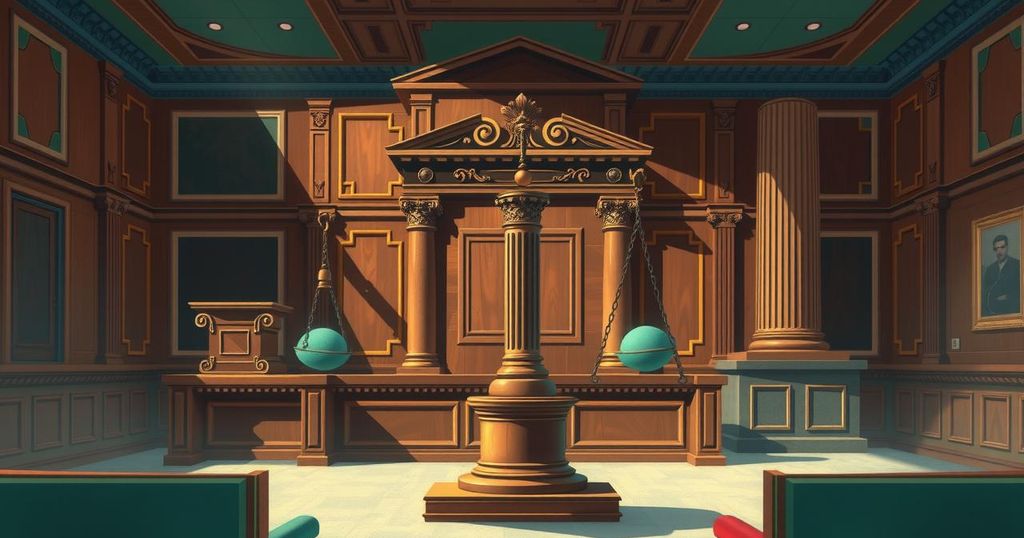Saul Luciano Lliuya, a Peruvian farmer, is suing RWE, a German energy firm, for its contribution to climate change through greenhouse gas emissions. His lawsuit, which could establish significant legal precedents, asserts that RWE’s emissions have accelerated glacial melt threatening his community in Huaraz, Peru. RWE counters by denying legal responsibility, advocating that climate issues should be handled at the state level rather than through lawsuits.
In a pivotal climate lawsuit, Peruvian farmer Saul Luciano Lliuya has initiated legal proceedings against the German energy company RWE in Hamm, Germany. The case hinges on claims that RWE’s greenhouse gas emissions have significantly contributed to global warming, which in turn has accelerated glacial melt in the Andes mountains above Lliuya’s hometown of Huaraz, Peru. This environmental change poses a serious risk of flooding to the local community due to the swollen Lake Palcacocha.
The significance of this case extends beyond Lliuya; experts suggest it could establish a crucial precedent for holding large polluting companies accountable for their contributions to climate change. On March 17, 2025, Lliuya attended the hearing, emphasizing the imminent threat posed by melting glaciers. He stated that “the glaciers are melting, are disappearing bit by bit, presenting a risk to more than 50,000 people living in the area.”
Additionally, Lliuya’s lawyer, Roda Verheyen, expressed cautious optimism regarding the case, acknowledging the urgency of the situation. She remarked on the indispensable nature of glaciers stating, “there is no time to be lost, because the glaciers are melting every day.” Verheyen underlined that RWE remains among Europe’s highest carbon dioxide emitters, framing this lawsuit as a potential launchpad for other similar actions against major polluters.
RWE has contested the lawsuit, declaring it legally unfeasible and warning that it could set a dangerous precedent by attributing climate change responsibility to individual emitters. The company maintains that climate accountability should be addressed through state and international frameworks rather than litigation.
The court proceedings include the examination of expert reports regarding the risks to Lliuya’s residence, although immediate conclusions from the judges remain unspecified. The outcome of this case may ultimately influence how climate accountability is approached in the future, particularly regarding multinational corporations.
This case is noteworthy not only for its environmental implications but also for the broader societal impact it may have, potentially reshaping legal interpretations of corporate responsibility in the context of global climate challenges.
In conclusion, the ongoing legal battle between Peruvian farmer Saul Luciano Lliuya and the German energy company RWE represents a critical moment in the struggle for climate justice. The lawsuit aims to hold RWE accountable for its role in climate change, with implications that may extend to other large emitters. The case is being closely watched by experts who believe it could pave the way for future litigation against polluters, highlighting the urgent need for accountability in the face of environmental crises.
Original Source: apnews.com






